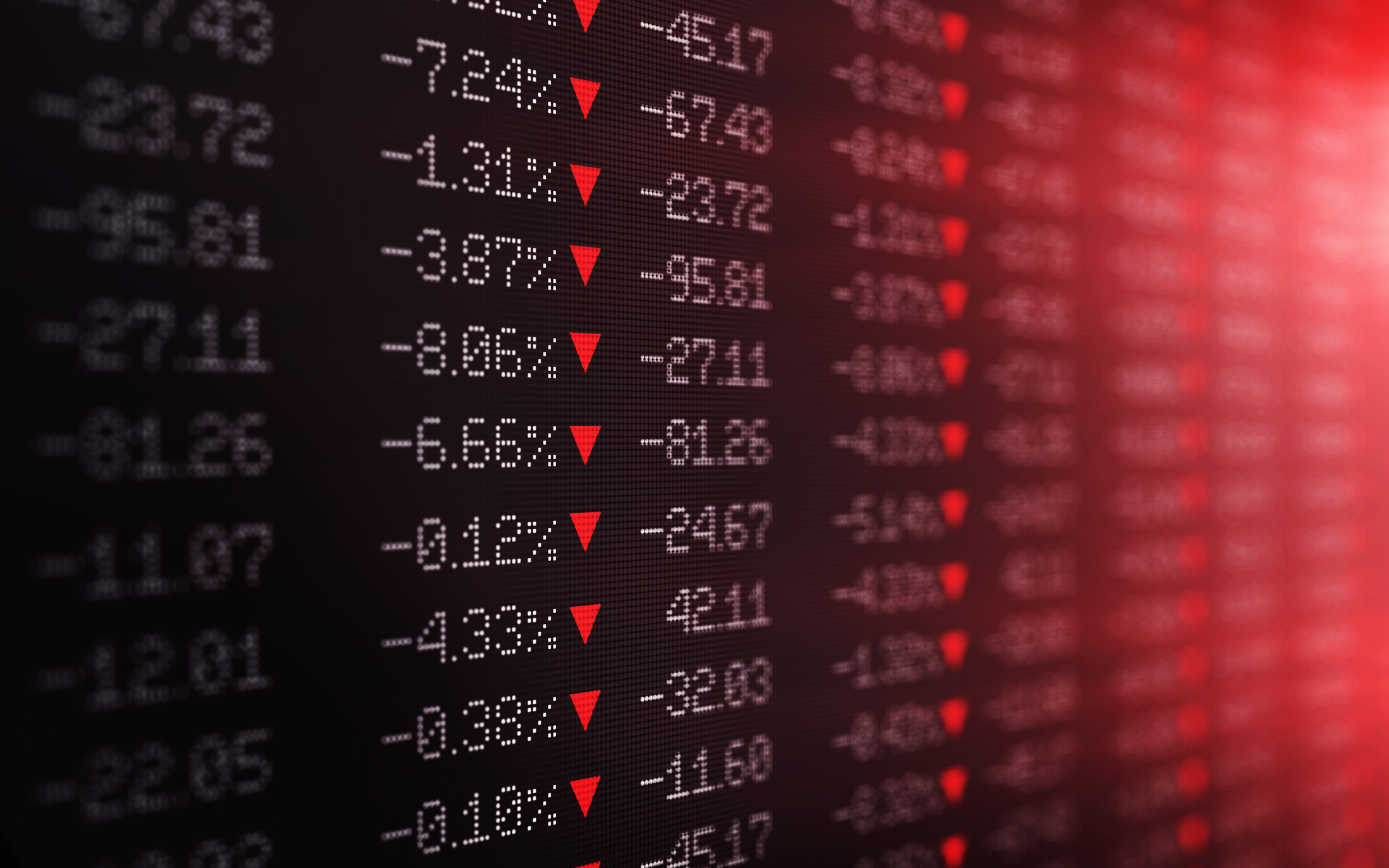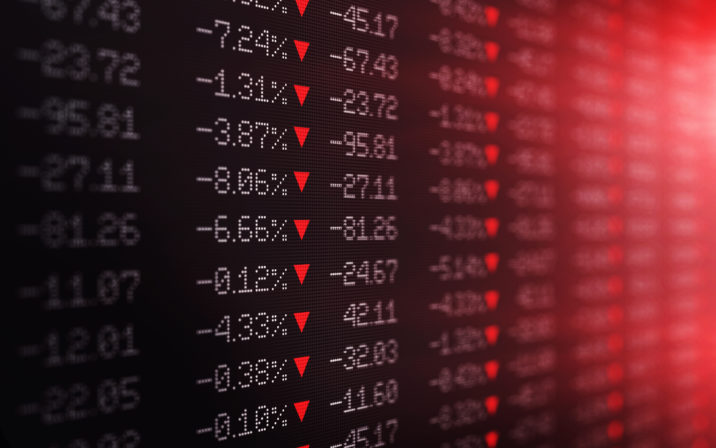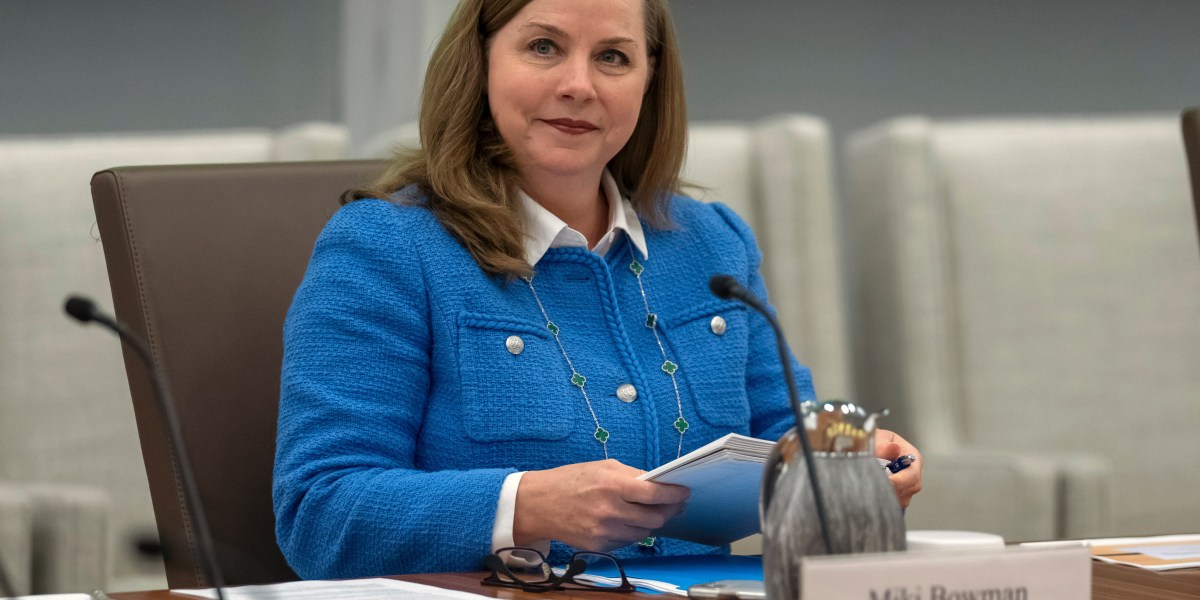Sustainable investors respond to market turmoil


When Deutsche Bank sent out an analyst note at around 2pm BST on Monday predicting “peak fear/volatility”, they could not have predicted that less than an hour later a fake news tweet would send the S&P 500 briefly skyrocketing before coming back down again shortly afterwards.
Similarly, the Deutsche analysts’ verdict that the announced tariff levels are “the ceiling not the floor” was called into question when US president Donald Trump threatened an extra 50 percent tariff on China later in the day.
Markets looked more resilient this morning, with Japanese stocks rising 6 percent on the news of possible trade talks and European equities stabilising, but key companies and indices remained substantially lower than before last week’s tariff announcement.
For some sustainable investors, the sell-off represents an opportunity.
“It has been fairly indiscriminate, making it very much a buyer’s market,” said Michael Sheehan, a fixed income portfolio manager at EdenTree Investment Management. “Credit valuations have become more attractive, though they are now closer to their historical average rather than being outright cheap.”
The volatile market backdrop is also increasing opportunities to source ESG-labelled bonds, he added, an area where supply has traditionally been limited due to its popularity with buy-and-hold investors.
Sheehan also noted that use-of-proceeds ESG-labelled bonds in the US are no longer trading at a premium, “reversing a previous trend and illustrating the lower appetite for these bonds”.
Rahul Bhushan, head of ARK Investment’s European arm and global head of index, also pointed to opportunities presented by recent market moves.
“The current dislocation is creating entry points in key sectors underpinning the energy transition and digitalisation mega-trends – particularly digital infrastructure, clean energy and transport resilience,” he told RI.
Similarly, Lucian Peppelenbos, climate and biodiversity strategist at Robeco, flagged “unexpected new incentives and opportunities”, such as the €100 billion of funding for green infrastructure secured as part of the defence deal in Germany.
However, he warned that inflationary pressure and slowed economic growth caused by the tariffs will risk delaying green investment in areas such as heavy industry, aviation and shipping.
Basak Yeltekin, head of ESG at TT International, told RI that the UK-headquartered manager was increasing exposure to renewable generation companies in its environmental solutions strategy “because utilities tend to outperform in a global recession with the ushering in of lower interest rates, which is looking increasingly likely”.
“In our emerging market strategies, we added to our telecommunications exposure, another defensive sector,” she said.
“The outperformance of sustainable investments was a phenomenon we also observed during covid. We expect higher-quality companies to perform better in the current market uncertainty. We may also see greater outflows from passive funds at this turbulent time.”
Resilient reaction
Meanwhile other investors argued that a sustainable focus has improved portfolio resilience.
Yeltekin noted that sustainable portfolios are significantly underweight energy and metals and mining, “sectors that are much more levered to global growth and at greater risk in an escalating tariff war”.
On an individual stock level, she added, the top five most overweighted companies held by sustainable funds – a mix of utilities and industrials – were down only 4.4 percent compared with 10.5 percent for the S&P 500 at close on Friday.
Similarly, EdenTree’s Sheehan said that sustainable bond portfolios, particularly those with a higher-quality bias, will likely have shown some outperformance.
“Investors in labelled securities have likely benefited relative to the wider market due to the underlying factors that dominate these bonds – quality, duration, and sector focus (with utilities and government/quasi-government entities being major issuers of use-of-proceed bonds),” he said.
Similarly, a European asset manager told RI that the tariff discussions are unlikely to have a direct impact on sustainable finance.
“It will depend globally on how asset owners react, and I don’t see them changing their direction,” they said. “Sustainable finance should have a long-term view, so we don’t want to lose sight of that direction. When you engage companies over the long-term, you cannot be distracted by controversies.”
They added that asset owners have an opportunity to reinforce the message they give to their managers, especially in a European context.
The current market volatility is a “great opportunity” to strengthen sustainable finance and for Europe to re-define itself, the manager said.
“We need to re-think what Europe is about. For me, Europe is the best place to find the best equilibrium between people, profits and planet. When we see the US being mainly driven by profits, Europe has the mindset to find the best equilibrium between all these points.”
However, another European investor struck a gloomier note, warning that sustainability considerations are often forgotten in times of financial stress, when markets revert to traditional, short-term investment thinking.
“Sustainable investment practices are designed precisely to manage long-term risks, many of which become more acute in volatile and uncertain environments. Abandoning this lens in favour of potential short-term gains can ultimately harm portfolios and undermine resilience,” they said.
Green energy
In the clean energy space, a European portfolio manager told RI that the downturn and volatility have broadly made investors more cautious, raising the prospect that “select opportunities” will emerge.
US companies that rely on imported solar panels, offshore wind turbine components from Europe and batteries from China will be hurt by the new tariff regime, the manager noted, while those sourcing local components will be more sheltered.
“We see opportunities opening up in the form of cheap stocks that are focused on their local market and have local supply chains,” they said.
The manager also noted that the energy transition space has been facing tariff and trade frictions for a while and in a number of places has already adjusted supply chains.
“It has already priced in uncertainty from worries of the Inflation Reduction Act policy revision, which is why the space broadly is trading at such a low valuation. If there is clarity over the IRA this summer, and potentially trade resolution (with the exception of China), there could be a good rebound.
“Various structural trends are still present: a need for power, energy security, etc. A number of our stocks have good dividends now and returns on capital.”
link






